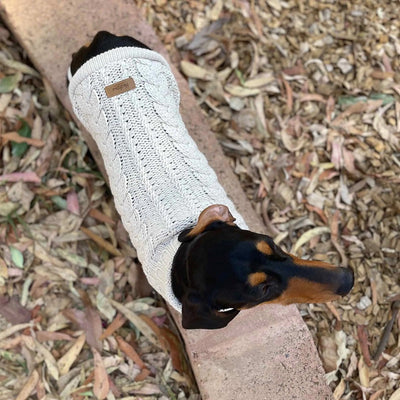What do Blue Tongue Lizards Eat?

Feeding your blue tongue lizard (these reptiles are a skink!) the right diet is essential to keeping them healthy and active. Knowing what to feed a blue tongue lizard and how often can go a long way in ensuring they get the nutrients they need for their long life. Blue tongues are omnivores and enjoy a wide variety of foods. Here's what you need to know about what your pet blue tongue lizard requires in it's diet to remain a healthy reptile!
Commercial Blue Tongue Lizard Food.
In addition to live food, there are a variety of commercially prepared foods that you can feed your blue-tongued lizard. Look for canned lizards or canned reptile diets, as well as freeze-dried and pelleted varieties. Insectivore and omnivore diets should contain proteins, fats, vitamins, and minerals in the right proportions to keep your pet happy and healthy. Be sure to avoid diets high in phosphorus or fat, as these can be harmful to reptiles. Always have a fresh supply of water available to your reptile. Misting their reptile enclosure can help create humidity and allow them to absorb moisture.
Yes, Blue Tongue Lizards can eat Fruits and Vegetables!
Fruits and vegetables are perfect for blue tongue lizards. They should be served up as part of their diet at least once a week. Dandelion greens, cilantro, kale, beans, end ive, turnip greens, corn kernels, parsley, collard greens, and other vegetables offer essential vitamins and minerals and a tasty treat for your pet. Fruits like apricots, peaches, apples, and bananas make great snacks for lizards along with strawberries and raspberries. Offer small amounts to avoid digestive upsets.
ive, turnip greens, corn kernels, parsley, collard greens, and other vegetables offer essential vitamins and minerals and a tasty treat for your pet. Fruits like apricots, peaches, apples, and bananas make great snacks for lizards along with strawberries and raspberries. Offer small amounts to avoid digestive upsets.
Fruits and vegetables can be dusted with a calcium powder such as Vetafarm Multical Dusting Supplement.
Insects and Insect Larvae.
Offer your blue-tongued lizard insects such as earthworms, grasshoppers, and mealworms. Insect larvae, snails, and crickets also make a tasty treat. Make sure that all live food is free of pesticides or other toxins. Dusting these foods with calcium powder is also beneficial for the overall health of your pet lizard.
mealworms. Insect larvae, snails, and crickets also make a tasty treat. Make sure that all live food is free of pesticides or other toxins. Dusting these foods with calcium powder is also beneficial for the overall health of your pet lizard.
Cooked Eggs and Mealworms.
Occasionally, you can give your blue tongue lizard cooked eggs or mealworms to supplement its diet. Egg yolks are high in fat and should be fed only sparingly, while calcium-fortified mealworms are an excellent source of protein and minerals. Make sure to feed these in moderation and use them occasionally as treats rather than regular sources of nutrition.
Plants such as Dandelion Greens and Nasturtium Leaves.
Many blue tongue lizards enjoy healthy and nutritious plants such as dandelion greens, nasturtium leaves and flowers, watercress, chicory greens, mustard greens, carrot tops, endive, and clover. All of these can be fed either fresh or dried; just make sure the plant you give your lizard isn’t poisonous.
How Often Should I Feed My Blue Tongue Lizard?
If you've just brought home a pet blue tongue lizard, one of the biggest  questions on your mind may be how often do they need to eat? It’s important to understand what and how often blue tongue lizards should be fed in order to maintain their health.
questions on your mind may be how often do they need to eat? It’s important to understand what and how often blue tongue lizards should be fed in order to maintain their health.
How Much Food Does a Blue Tongue Lizard Need to Eat?
Blue tongue lizards require a diet that consists of a variety of fruits and vegetables, insects, snails, and meat. As they are omnivores, they need both plant and animal materials in order to stay healthy. The ideal diet contains at least two or three different types of food that can be offered every other day. Protein-rich items like crickets should be given around once a week, while fruits and veggies should be offered daily. Baby blue tongues might need to eat more often than adults, so keep an eye on their growth and adjust the feeding schedule accordingly. Juvenile lizards will need more protein in their diet while they are in their growth phase.
Should I give my Blue Tongue Lizard any Supplements?
If you have a Blue Tongue Lizard as a pet, it is important to ensure that it is receiving a balanced and nutritious diet. While some commercial reptile foods are available, it is also recommended to feed them a varied diet of fresh vegetables and fruits, insects, and sometimes small amounts of lean meat or eggs.
In some cases, your Blue Tongue Lizard may require additional supplementation. For example, if the lizard is not receiving
enough calcium in its diet, it may develop metabolic bone disease. In this case, calcium supplements can be added to the lizard's food. Vitamin D3 supplements may also be necessary to ensure that the lizard is able to properly absorb the calcium.
Ensure that any supplements given are given in the proper dosage and frequency.
How Often to Feed Your Blue Tongue Lizard
The general guideline is to feed your blue tongue lizard every other day, or every third day. This allows the lizard time to digest their food properly and access its full nutrient potential. Depending on the age and size of your pet, you can adjust the feeding schedule as needed, but generally it’s best to stick to a similar routine for each mealtime. Younger lizards may require daily feeding, whereas adults may only need two meals a week. Furthermore, in order to keep your pet healthy and energetic, be sure to supply them with a variety of foods so they receive all the necessary nutrients.
Tips for Making Meal Time Easier
A routine feeding schedule can make meal time easier and less stressful for both you and your blue tongue lizard. Keep your pet's food in a sealed container to avoid messes and store it away from direct sunlight. Also, keep in mind that some lizards may not eat if their environment does not mimic the ideal temperature or light level for the species, so it’s important to pay attention to those details when planning their meals. Lastly, always wash your hands thoroughly after handling the food or your pet reptile. Remove any perishable food to prevent it from spoiling. Always have a food bowl containing the balanced pelleted blue tongue lizard diet available and fresh drinking water.
© weknowpets 2023










